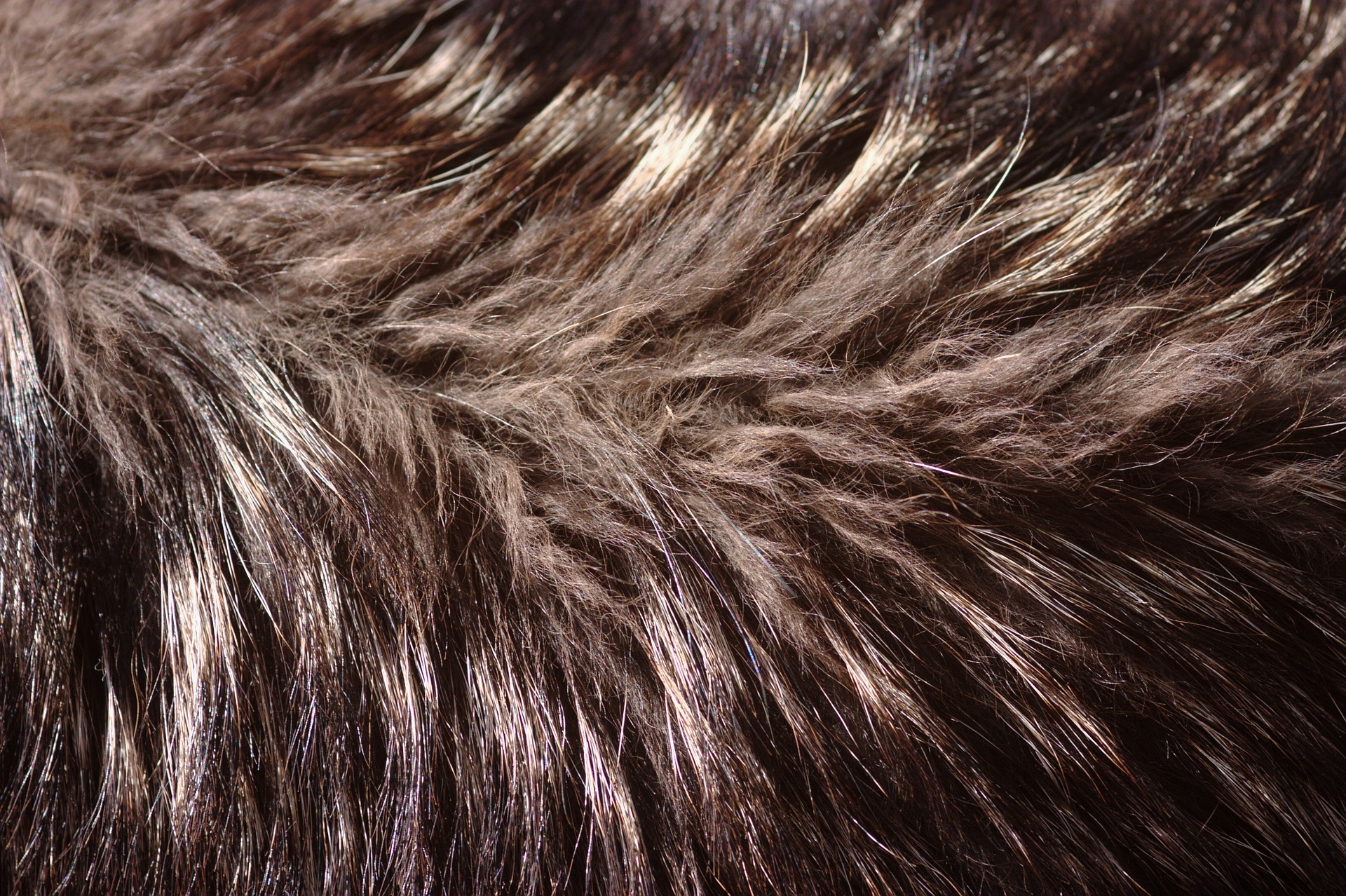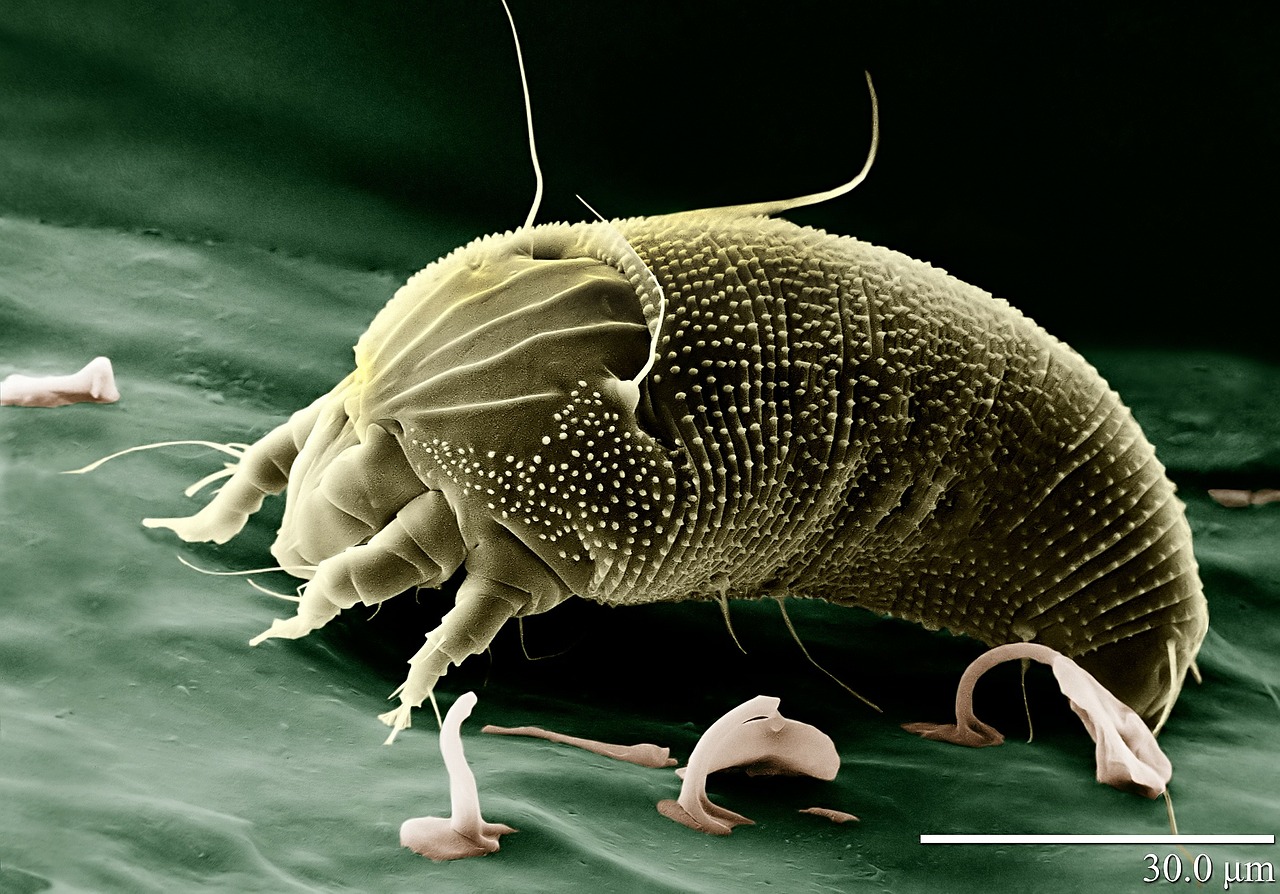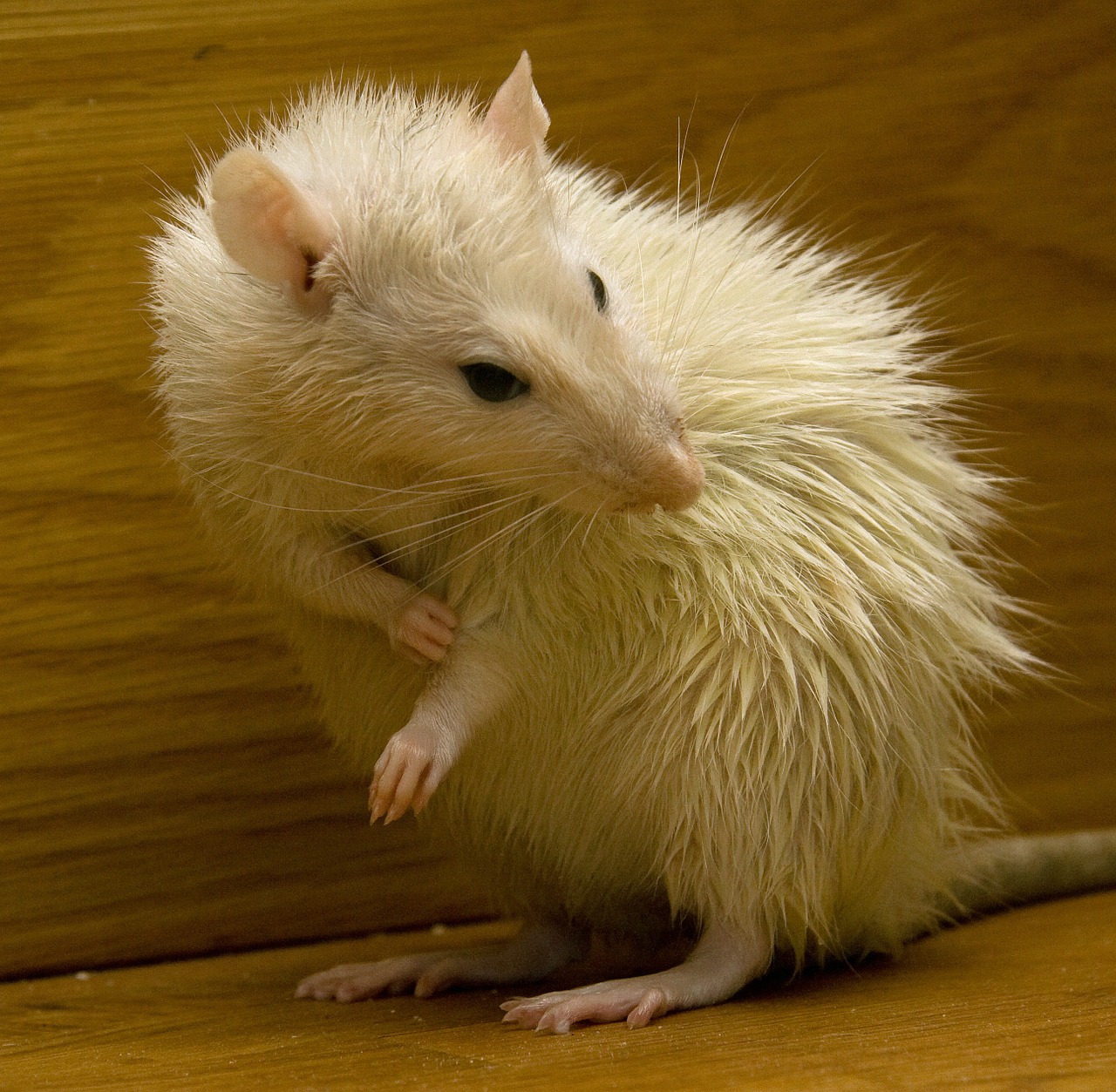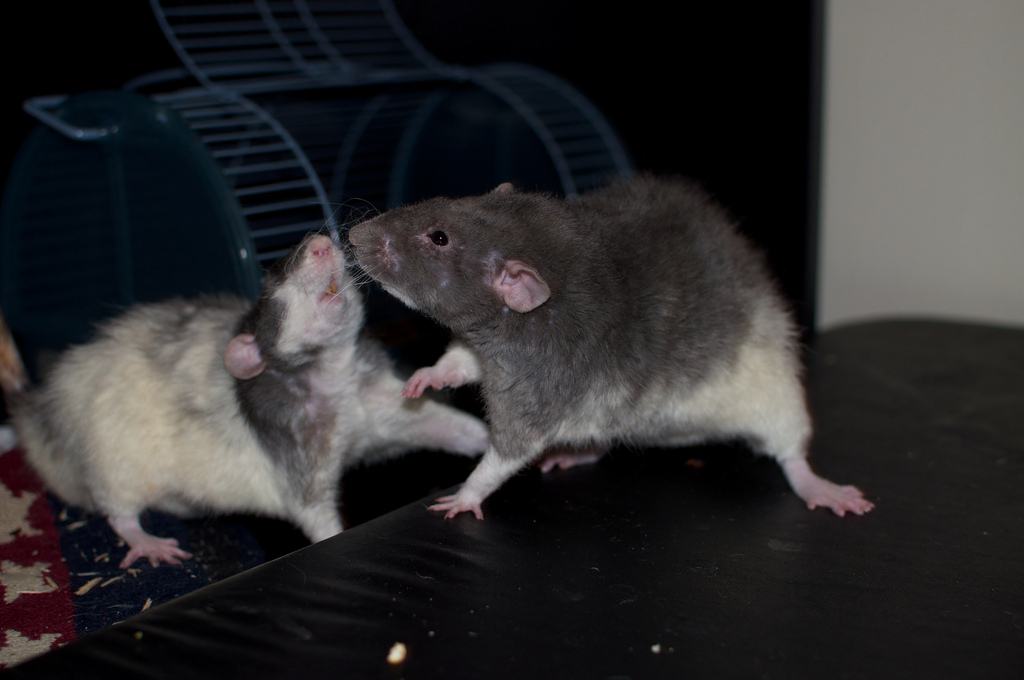Why Is My Rat Going Bald? Natural Hair Loss, Disease, or Parasites?

A rat going bald could be something as simple as a unique coat variety, or as serious as a deadly infection, parasite, or severe bullying. If a rat suddenly begins losing hair, his or her age, coat type, sex, overall health, and relationships between cage mates must be noted. All of these different things can play an important role in baldness. For a rat going bald, the owner can rest easy once he or she knows that the fur baby is safe and healthy!
Rex Rats & Hair Loss: Baby’s First 4 Week Molt
 Rex rats have the potential to molt over the course of their lives. A wavy, coarse coated rat is known as a rex, a unique coat variety that results in curly whiskers and a disheveled appearance. Rexes and double rexes both will molt, generally beginning at three and a half to four weeks of age. They may go completely bald, or they may just lose chunks of hair. These patchy spots may look as if the rat has a hot spot as dogs get. This hair loss is natural and to be expected! As the days go by, the rat should grow a new rexed coat; for a patchwork hairless or double rex, it is possible that the rat will lose fur over and over again, or it could remain permanently bald over 90% of his or her body!
Rex rats have the potential to molt over the course of their lives. A wavy, coarse coated rat is known as a rex, a unique coat variety that results in curly whiskers and a disheveled appearance. Rexes and double rexes both will molt, generally beginning at three and a half to four weeks of age. They may go completely bald, or they may just lose chunks of hair. These patchy spots may look as if the rat has a hot spot as dogs get. This hair loss is natural and to be expected! As the days go by, the rat should grow a new rexed coat; for a patchwork hairless or double rex, it is possible that the rat will lose fur over and over again, or it could remain permanently bald over 90% of his or her body!
Mites, Lice, and Other Parasitic Infestations
Parasites are also capable of causing hair loss in rats. For the typical healthy rat, fur will be shed and regrow as normal. Fur should be evenly distributed for most rats, with the exception of rexes and patchwork rats.

Killing rat mites can be a hard process. Revolution and Ivermectin are commonly used, with the first being most effective. Scabs, small white, orange, or red bugs, and excessive itching could mean your rat has a mite infestation.
With rat parasites, different types of hair loss may occur. For internal parasites that lead to malnutrition, hair could be lost due to stress. It would also be lost due to the inability to produce or maintain hair growth. The amino acids required for hair health may be needed elsewhere in the body. For those with mites or lice, it is important to get rid of the mites and lice on the rat. particular types of mites can actually damage the hair follicles. In most cases, however, it is the rat that will accelerate hair loss through excessive bathing and scratching. Sores, irritation, bleeding, open wounds, and even infection could take over the rat’s skin leaving no room for fur. The link above will help you if this is the case.
Malnutrition and Abuse Cause Hair Loss: Adopting Rescues or Feeder Rats

A rat can enjoy a bath greatly, so don’t be afraid to get them wet!
For rats who have been rescued from poor living conditions, feeder breeders, or pet shops, it is very possible that the hair loss is due to abuse or malnutrition. Rats in poor living conditions may face horrid diets that do not provide the nutrients (such as amino acids) to promote overall health, much less optimum coat health. The bedding, or lack of bedding, may cause the rats to wallow in their own waste. This could cause infection, burns, excessive scratching or grooming, and scarring. Filthy conditions will cause rats to experience many health issues; and a pitiful coat signals that the rat was not taken care of at all.
Fighting and Bullying among Rats
Splotchy hair loss could be a result of fights and quarrels with cage mates. A rat with particularly bad hair loss may be the victim of a cage bully. If the hair loss occurs with frequent squeaks and squeals, it is most likely that the rat is not getting along well with another cage mate.

Sometimes, rats get a little too rough while playing and fighting. This can result in injuries to the eye. Photo Credit: Brad Clinesmith
If the rats were recently introduced and are still trying to get used to one another, the hair loss should dissipate once the rats bond with one another. It can take several days (even a week or two) before rats will quit bullying one another. Generally, this initiation will end and the rats will become very good friends. Dominance must be established before any bonding will take place.